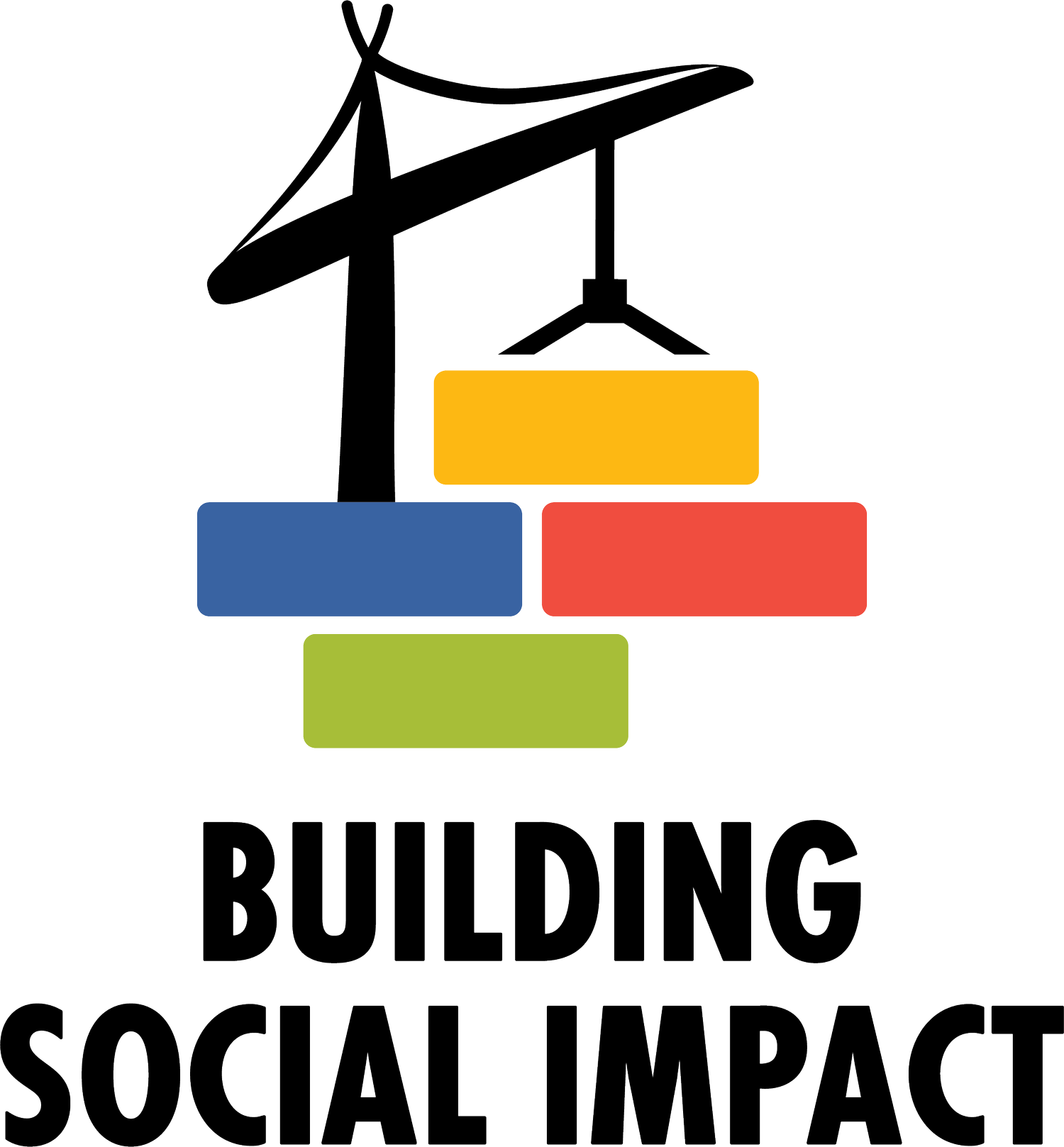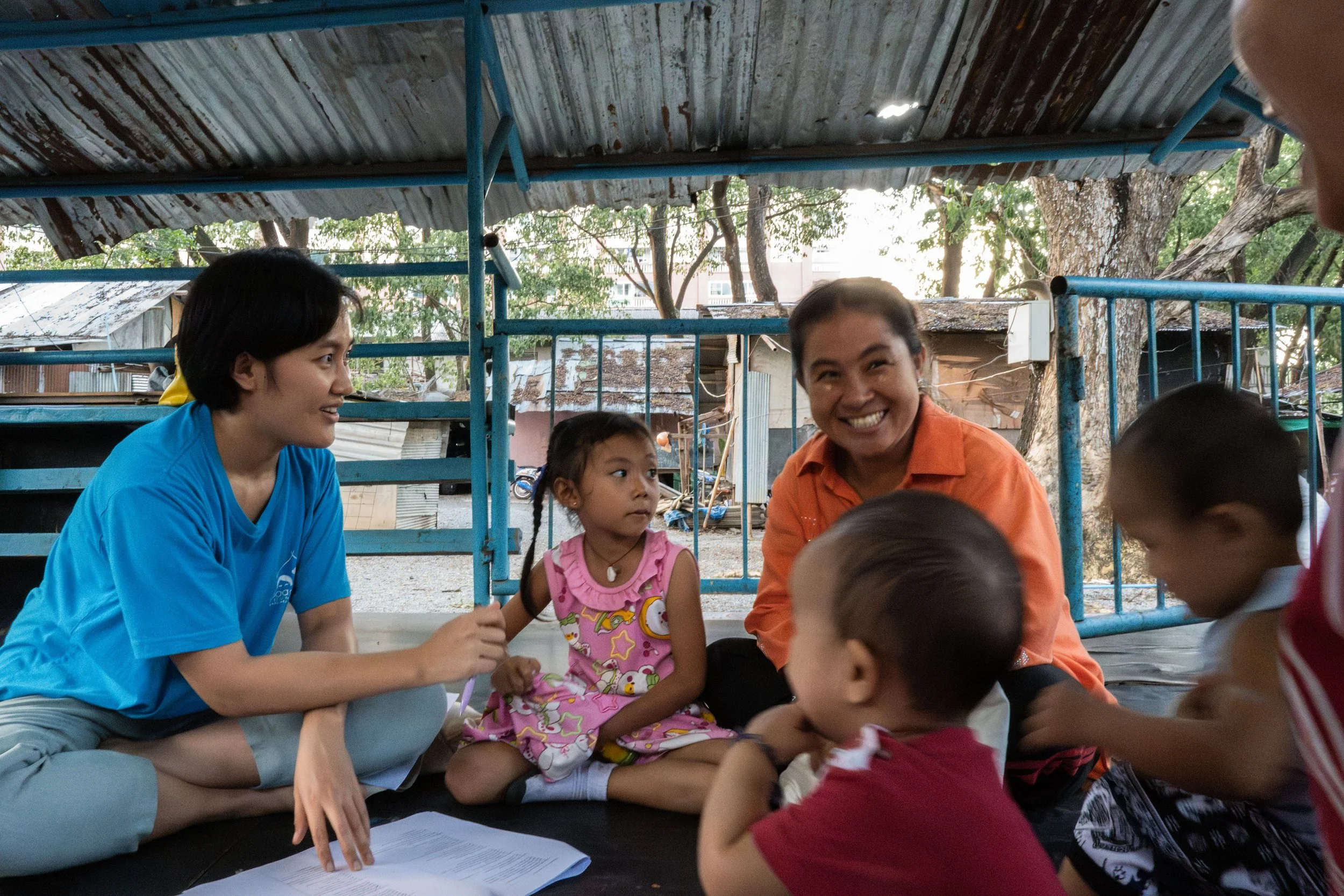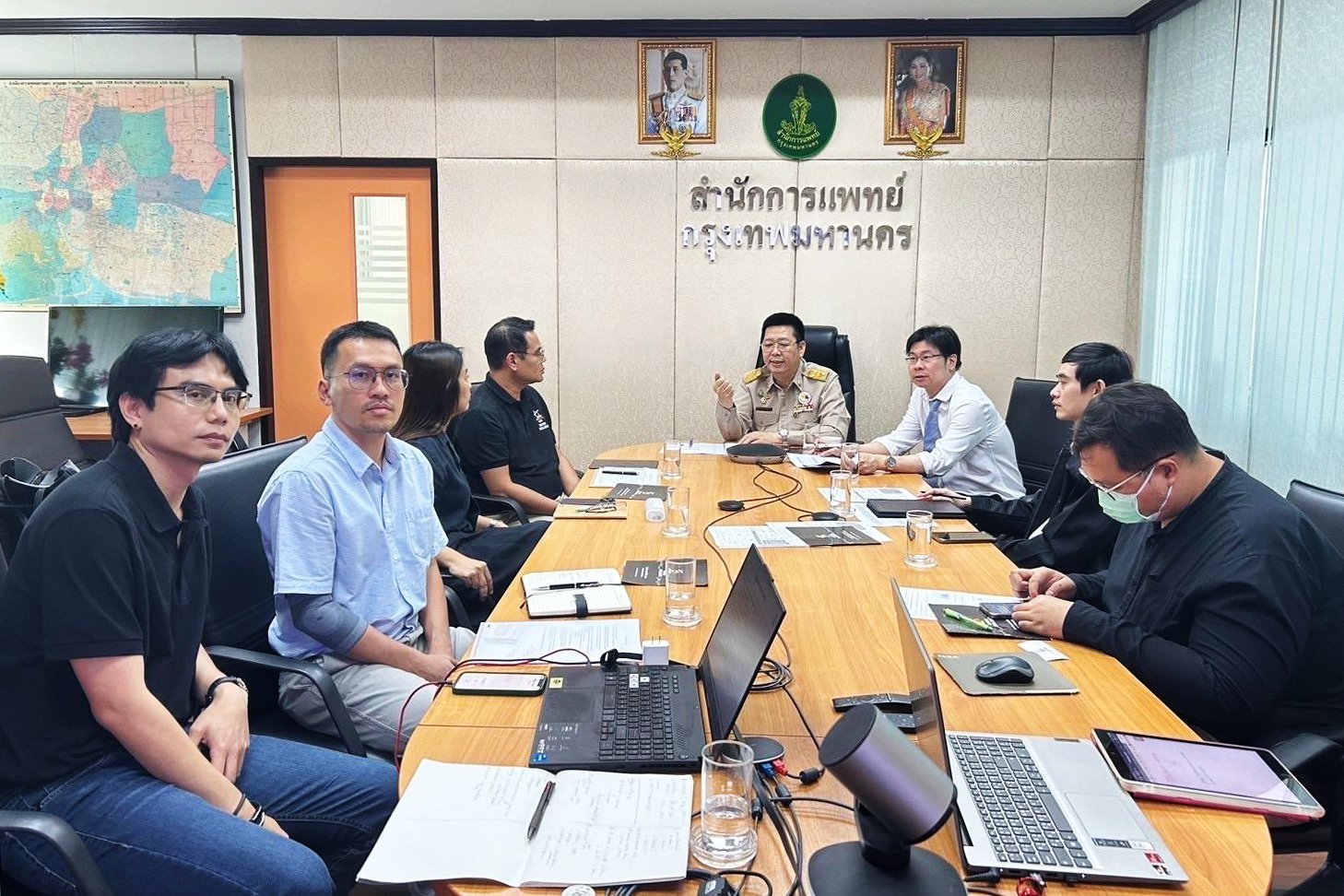
Article
BUILDING BriDges
in accessing health services
Available in /สามารถดูเป็นภาษา:
Building Bridges to Better Health Outcomes for Migrant Workers and Their Children in the Thai Construction Sector
Thailand serves as a regional hub for migrants as a place of origin, transit, and destination. Particularly, the construction sector employs approximately 700,000 migrants, out of which 40% are women.(1) These migrant workers often bring their children or have children in Thailand, resulting in an estimated 60,000(2) children residing in construction site camps in slum-like conditions. They face key challenges in terms of access to public services (education, healthcare, and child protection), infrastructure, and a safe environment.(3) Challenges regarding health are especially stringent, with low health literacy and important barriers to access preventive healthcare.
The Mother and Child Health Handbook (also referred to as Pink Book), a health monitoring tool provided by hospitals during pregnancy, offers information on child development milestones. While the survey highlighted the value of the Pink Book, it also revealed a lack of training on its usage and a language barrier that prevents parents from effectively using it. This results in limited knowledge regarding child development milestones, such as vaccination. As such, 81.3% of respondents declared having limited knowledge regarding vaccination for their children.
The survey assessed participants’ knowledge of four common communicable diseases and indicated some knowledge gaps including on Hand, Foot, and Mouth Disease transmission risks and symptoms, dengue prevention strategies, transmission risks and prevention of chickenpox disease as well as symptoms and prevention strategy of diarrhea. Such gaps can negatively impact the well-being of the workers and their children, while also creating additional challenges for the smooth continuation of their work with parents being unable to work to take care of their children.
Understanding the Health Challenges and Needs Among Construction Workers and their Families
From May to June 2024, BDF conducted a survey to better understand construction workers’ access to health services and their health literacy, with the goal of guiding BDF’s actions and collaborating with construction companies to ensure a lasting social impact. The survey was conducted using mixed methods, both qualitative and quantitative, among 75 households over 21 target communities in Chiang Mai province.
Limited access to official information platforms and integration into the public health network
There is still a knowledge gap among construction workers about their medical rights, with 26.7% of respondents stating that they are unaware of these rights. In addition, 40% reported not having any type of medical care card (Migrant Health Insurance Card or Social Security Scheme).(4) Among those with medical insurance, 54.7% indicated they were not aware of the coverage provided.
Construction workers also rely heavily on informal networks to obtain health-related information, as outlined by the fact that 46.7% of respondents reported obtaining health information from cousins or neighbors, 30% from Meta, 21% from TikTok, and 30% from health officers. Furthermore, the survey revealed a gap in information sharing among the communities, with 88% of respondents declaring not having access to a health service location map in the community. Findings from the survey also expound on this with participants sharing that the language barrier is the main challenge preventing respondents from accessing public services, and related health information, according to 25.3% of respondents.
“I cannot understand the Thai document and explanation from a health officer. It is very hard to fill in my information on hospital documents to get treatment. I have to bring my neighbor who can understand Thai to help me at the hospital.”
Furthermore, findings from the survey indicate that communities, where construction workers live, are not served by the Thai Village Health Volunteer system(5), with 69.3% of respondents declaring having never received a visit by the Thai Village Health Volunteers. Thai Village Health Volunteers, a community-based healthcare program where trained volunteers provide basic health services, education, and support at the local level, play a crucial role in helping residents with accessing health services and monitoring and preventing diseases within their communities.
Low health literacy on child development and seasonal communicable diseases
Looking Forward: Addressing the Needs and Taking Action
The Peer-to-Peer approach is a key element in empowering communities and bridging the health literacy gap
Overall, the findings derived from the Survey reflect that despite Thailand’s progressive Universal Healthcare policy, migrant workers face obstacles in accessing healthcare, including limited access to public health messages, insufficient awareness, low health literacy, and language barriers. Addressing these multifaceted challenges is crucial to improving the overall well-being of migrant children and their families, towards improving labor retention, boosting productivity, and mitigating reputational risks during a pandemic.
BDF is developing a sustainable and scalable peer-to-peer model, utilizing trained Health Focal Points (HFPs) in construction site camps in Chiang Mai, establishing connections with construction companies and public healthcare providers while empowering communities. The Health Literacy Empowerment Project, launched in March 2024, focuses on training Health Focal Points to provide health information in communities and connect them to public healthcare providers to facilitate access to medical services.
Improving the well-being of workers and their children through the Building Social Impact Initiative
This peer-to-peer model has the potential to be scaled through the Building Social Impact (BSI) Initiative, a coordinated effort led by BDF with ownership from the construction sector to improve living conditions and access to public services for migrant workers and their families. By widely disseminating and integrating health literacy content, its training modules, and key learnings from this Project, businesses in the construction sector are uniquely positioned to promote and foster better living conditions and healthcare access for workers and their children. This, in turn, benefits businesses by reducing risks in the camp, improving labor retention, and aligning with existing sustainability frameworks and reporting. Ultimately creating a virtuous cycle where people, businesses, and society all thrive together, driving positive, lasting change.
(1) Foreign Workers Administration Office
(2) Baan Dek Foundation and UNICEF Thailand, “Building Futures in Thailand: Support to Children Living in Construction Site Camps,” 2018
(3) Baan Dek Foundation and UNICEF Thailand, “Building Futures in Thailand: Support to Children Living in Construction Site Camps,” 2018
(4) The Migrant Insurance Card provides basic health insurance and covers expenses related to illness, injury or accidents. The Social Security Scheme Card is issued to workers (including migrants) who are part of the Thai Social Security system.
(5) Thai Village Health Volunteers is a community-based healthcare program under the Ministry of Public Health where trained volunteers provide basic health services, education, and support at the local level. They play a crucial role in helping residents with accessing health services and monitoring and preventing diseases within their communities.
Summary in visuals
*The project discussed in this publication has been supported by the Global Development Network (GDN) and the Ministry of Finance, Government of Japan under the Global Development Awards Competition. The views expressed in this article are not necessarily those of GDN or Ministry of Finance, Government of Japan








